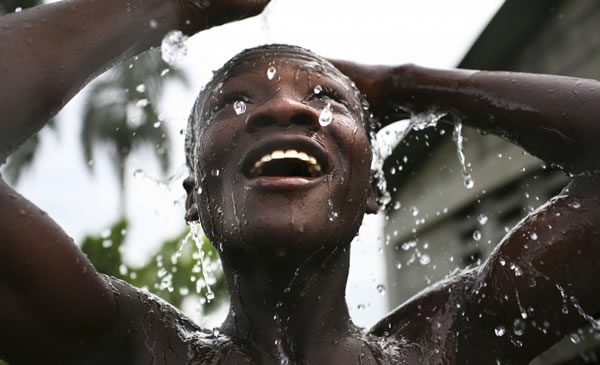
By Coco McCabe, Humanitarian Reporter with Oxfam America
In the camps where Oxfam works in Port-au-Prince, displaced people are beginning to pay for their own water.
For the hundreds of thousands of earthquake survivors Oxfam has been working with in camps scattered across the Haitian capital of Port-au-Prince, now is a time of transition.
For more than a year, Oxfam has been providing free chlorinated water – up to 79 million gallons a month – to help prevent the spread of disease by ensuring people had a clean and reliable source for drinking and cooking.
But since mid-February, Oxfam has begun to hand over that responsibility – along with the collection of solid waste – to camp committees trained in overseeing water sales, chlorination, and solid waste management. The goal is to empower people to take control of the resource, which also means paying for its use.
A more permanent water distribution system
Before the January 2010 earthquake, many people paid for their water. The average cost of a five-gallon jug was about 12 cents. In June of last year, the national water authority – DINEPA, or Direction Nationale de l’Eau Potable et de l’Assainissement – asked aid groups like Oxfam to try and find a more sustainable solution to the water supply than trucking it in for free. DINEPA maintains that if aid organizations continue to provide free water, the authority will not be able to build a permanent system.
In supporting DINEPA’s request, Oxfam is also going a step further and ensuring that this transition includes extra benefits for residents: the 12 cents charged for every five-gallon jug includes a fee that will cover the collection of solid waste twice a week in the camps where Oxfam works.
Oxfam is not leaving the camps
As communities assume responsibility for their water and sanitation services, Oxfam will deploy a mobile team of water experts whose job will be to monitor and maintain the infrastructure – the water lines, the taps – and guarantee the quality of services in the camps. Oxfam will also continue to de-sludge the latrines. And the mobile team will have the ability to intervene if there are new outbreaks of disease in the areas in which Oxfam works. During the recent cholera outbreak, there have been few cases of the deadly waterborne disease in the camps where Oxfam has been present – an indication that its hygiene promotion efforts have been effective.